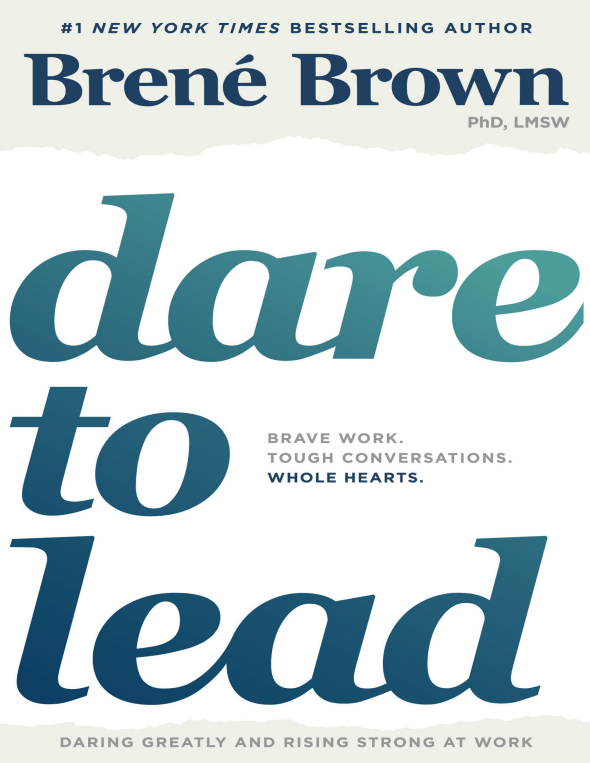
True courage requires vulnerability, showing up despite uncertainty. Leadership isn’t about perfection, but daring to ask: ‘What’s really happening?’ The armor we wear, perfectionism, cynicism, blocks connection and joy.
Brown’s paradox: You must be vulnerable to be brave. Real leadership sees potential in people and ideas, then nurtures it. It’s daily brave work, tough conversations, and wholehearted engagement.
As author says: ‘You can’t get to courage without rumbling with vulnerability.’ That’s how we lead, not by avoiding fear, but facing it.
 Summary
SummaryThis is a research-based guide to courageous leadership in the workplace. Drawing from her extensive studies on vulnerability, shame, and empathy, Brown argues that effective leadership isn’t about authority or perfection—it’s about cultivating courage, fostering trust, and embracing vulnerability.
The book is structured around four key skill sets:
Rumbling with Vulnerability – Leaders must lean into discomfort, acknowledge uncertainty, and take risks without guarantees. Vulnerability is the birthplace of innovation and trust.
Living into Our Values – Brown emphasizes defining and practicing core values (e.g., integrity, accountability) daily, especially under pressure.
Braving Trust – Trust is built through small, consistent actions. Brown breaks it down into seven elements (Boundaries, Reliability, Accountability, etc.) using the acronym BRAVING.
Learning to Rise – Leaders must rebound from setbacks by recognizing emotions, challenging self-defeating narratives, and adapting.
Brown’s research includes interviews with hundreds of leaders across industries, revealing that organizations thrive when leaders ditch “armor” (like perfectionism or avoidance) and foster psychological safety. She provides practical tools, such as:
“The Arena” metaphor (inspired by Teddy Roosevelt’s “Man in the Arena” speech): Real leadership happens amid effort, failure, and criticism.
“Clear is kind. Unclear is unkind.” Direct communication prevents resentment and confusion.
Empathy vs. Sympathy – Leaders must practice active listening without fixing or diminishing struggles.
Dare to Lead challenges traditional notions of “tough” leadership, advocating instead for heart-centered, courageous approaches that drive engagement and creativity. It’s particularly relevant for managers, executives, and entrepreneurs seeking to build resilient teams.